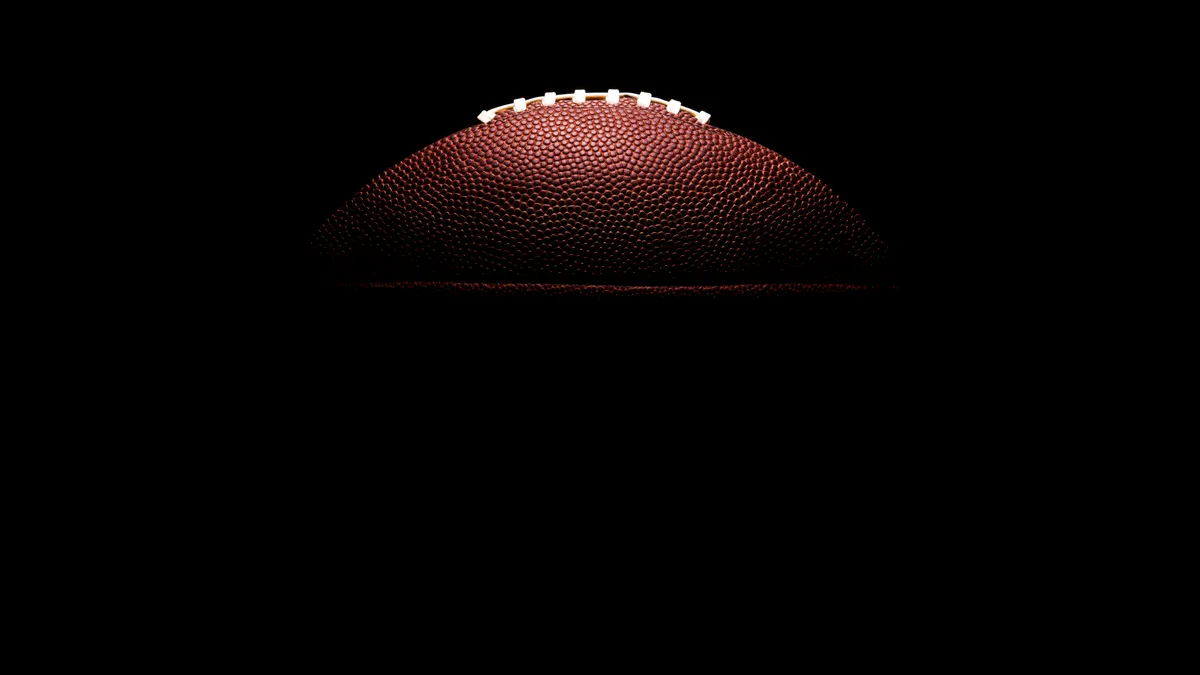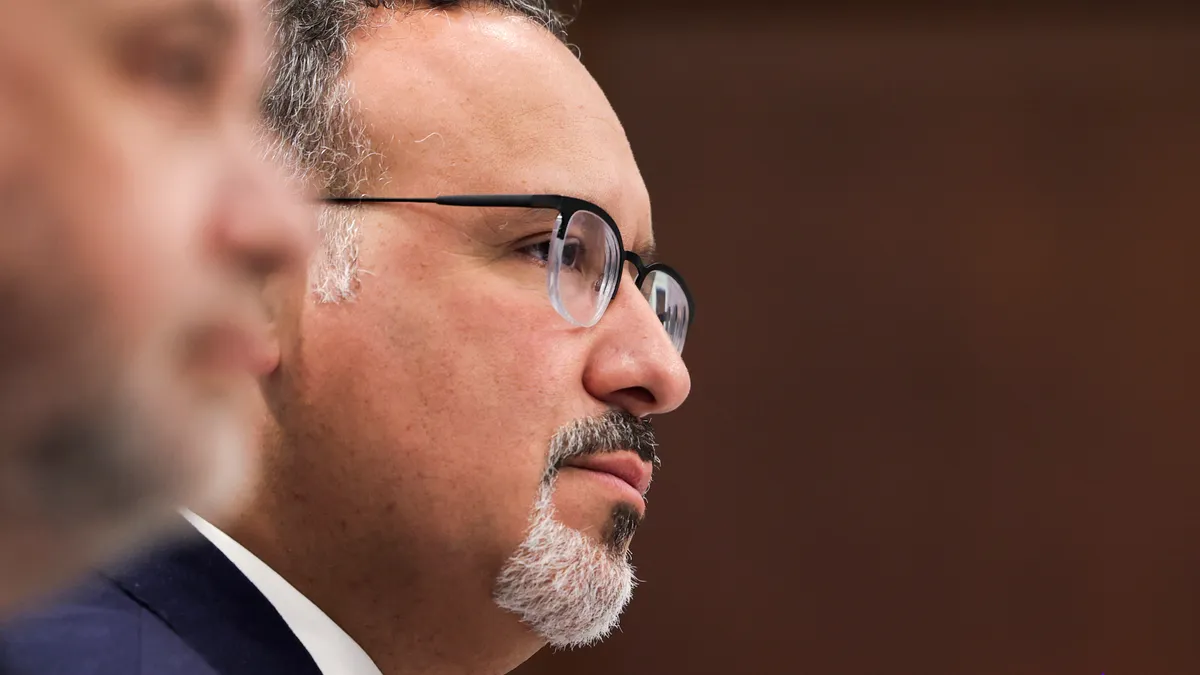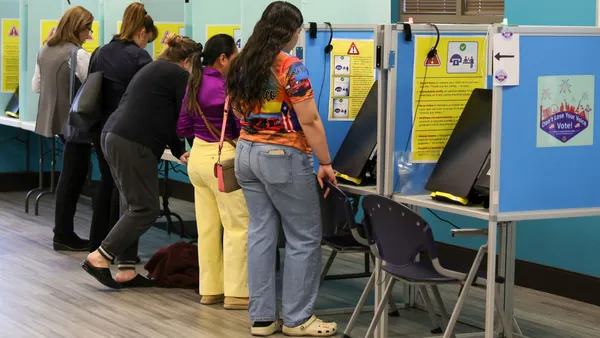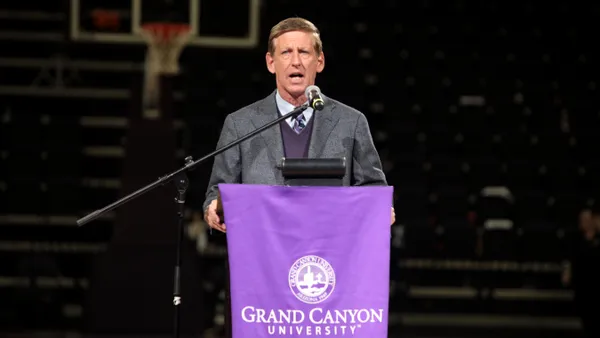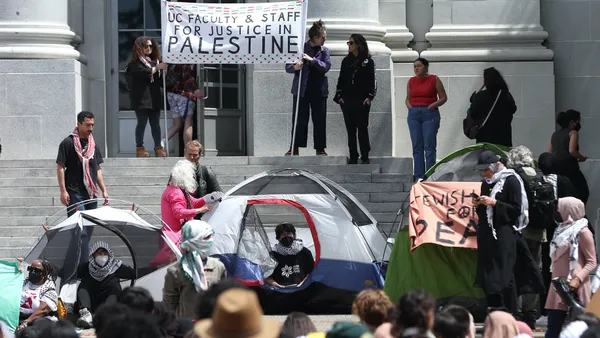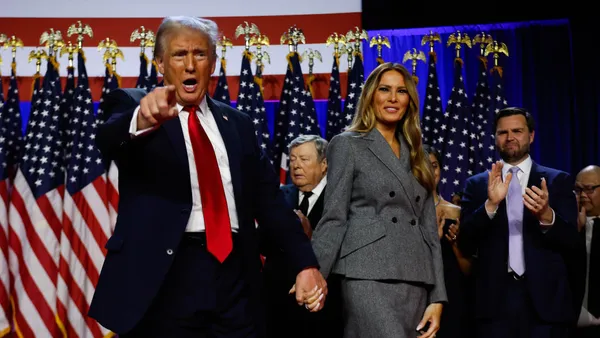Dive Brief:
-
Measures to compensate college players for use of their name, image and likeness are advancing among athletic associations and legislatively.
-
The National Association of Intercollegiate Athletics (NAIA), which governs small colleges' sports programs nationwide, recently approved a policy allowing student-athletes to be paid for promoting commercial products and businesses, and for public and media appearances.
-
Athletic activists who have long pressed for fewer restrictions argue players deserve a cut of the proceeds from those activities because institutions and associations profit off them.
Dive Insight:
NCAA leaders and others have long maintained that allowing student-athletes to earn money from the use of their names, images and likenesses by their institution or other organizations would threaten amateurism within college sports.
The NCAA had not budged on the matter. But California passed a law about a year ago authorizing players at institutions in the state to profit off their appearances. The association vehemently opposed the legislation, suggesting that if it was approved, California's colleges might not be able to participate in the NCAA's championship competitions, the implication being that the policy would give them an unfair recruiting advantage.
Yet the state's lawmakers did not back down. And other legislatures began greenlighting similar bills.
Months later, in April, the NCAA said it would introduce updated name, image and likeness rules for all student-athletes by the end of this month to be voted on at the organization's annual convention in January 2021. The changes would take effect by the start of the 2021-22 academic year, the NCAA said.
Federal lawmakers have also introduced legislation to compensate student-athletes for the use of their personas.
A bipartisan bill released last month would preempt existing or prospective state laws covering name, image and likeness for student-athletes and create congressional oversight of the practice. Student-athletes would be able to enter into deals as long as they didn't risk their reputations, such as by endorsing alcohol or tobacco products. The Federal Trade Commission would oversee these arrangements.
The bill also makes clear student-athletes aren't college employees who institutions pay directly, protecting their access to financial aid.
Sen. Marco Rubio, R-Fl., put forward a similar bill in June.



